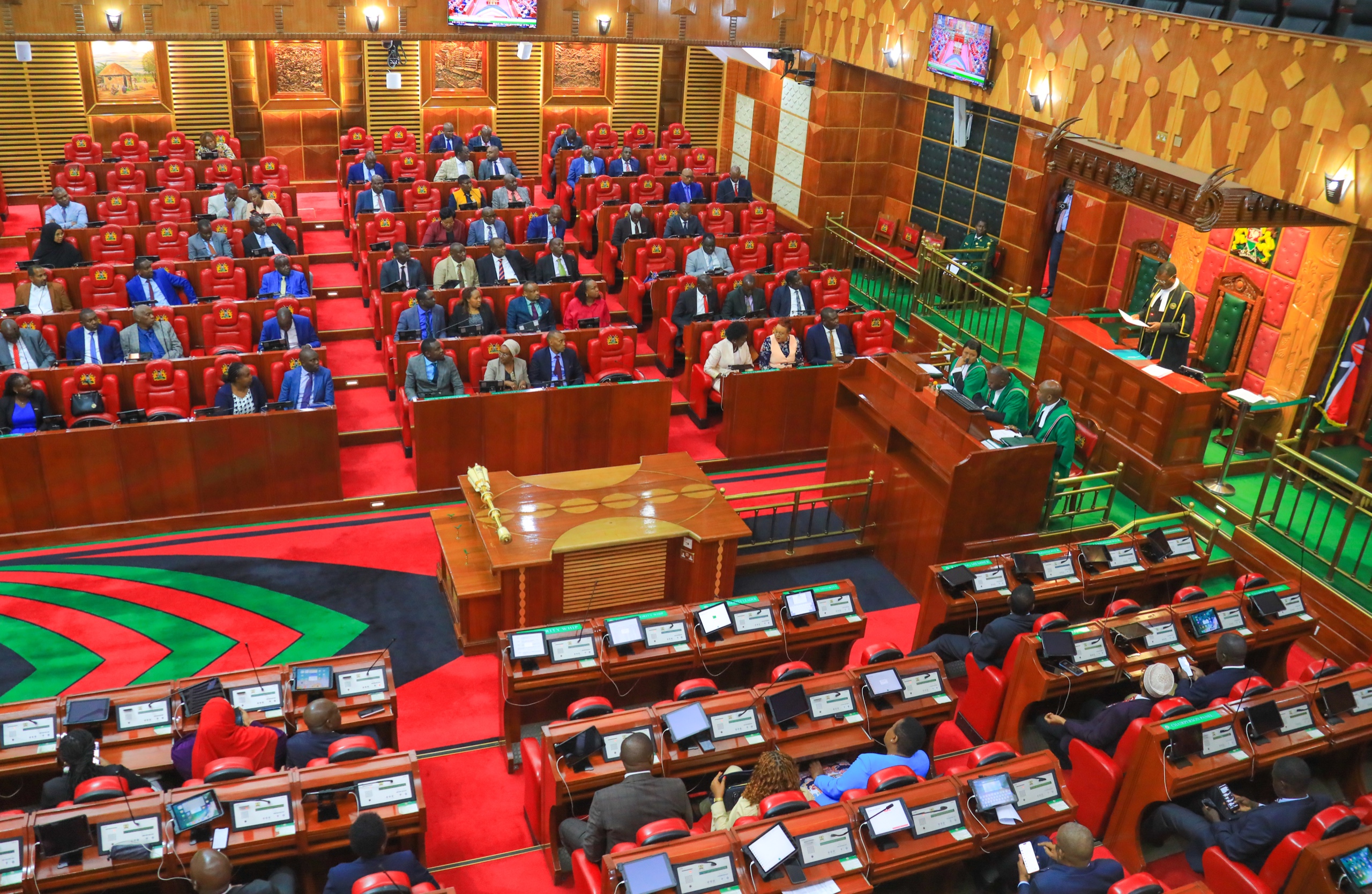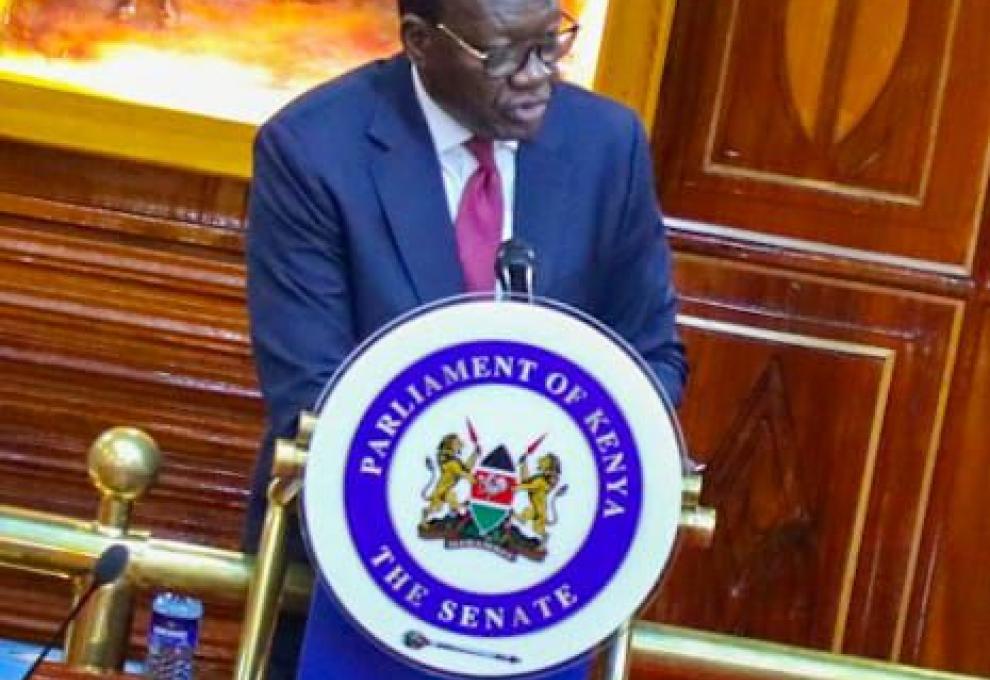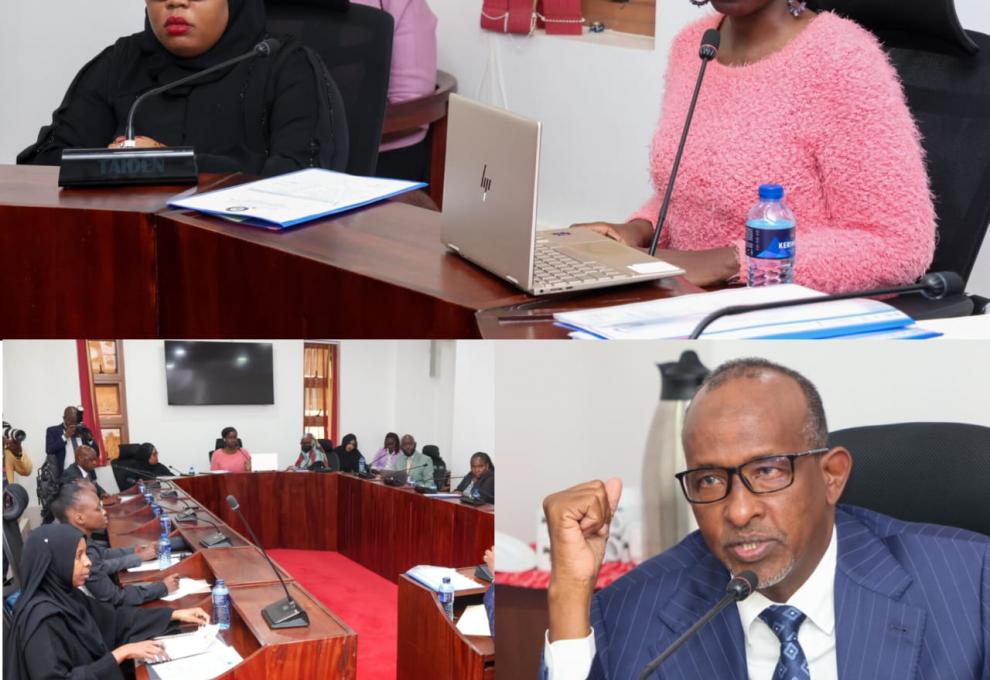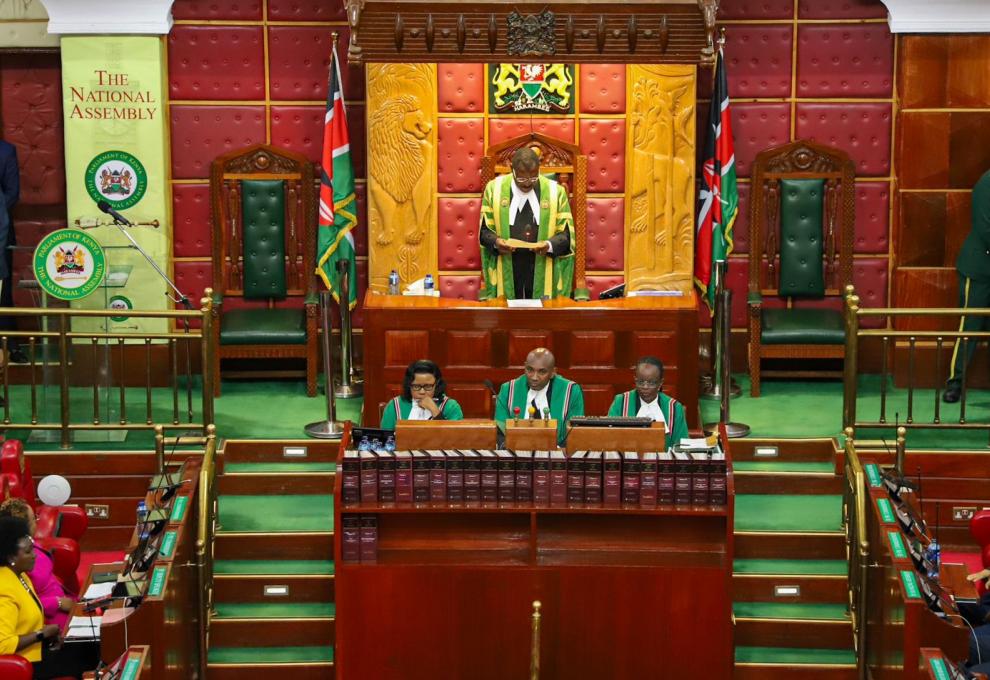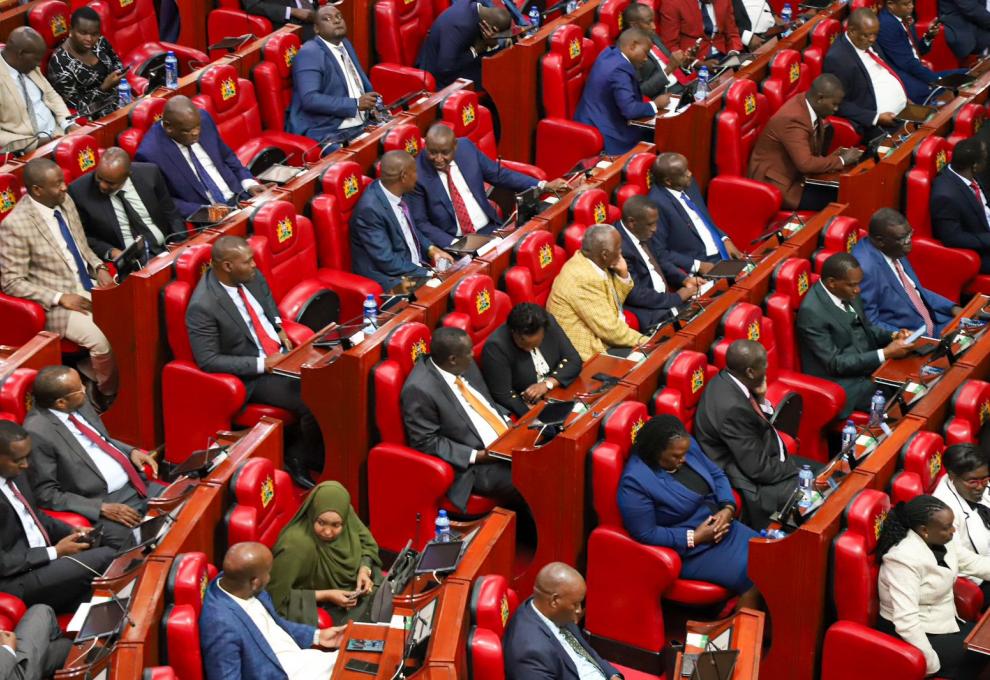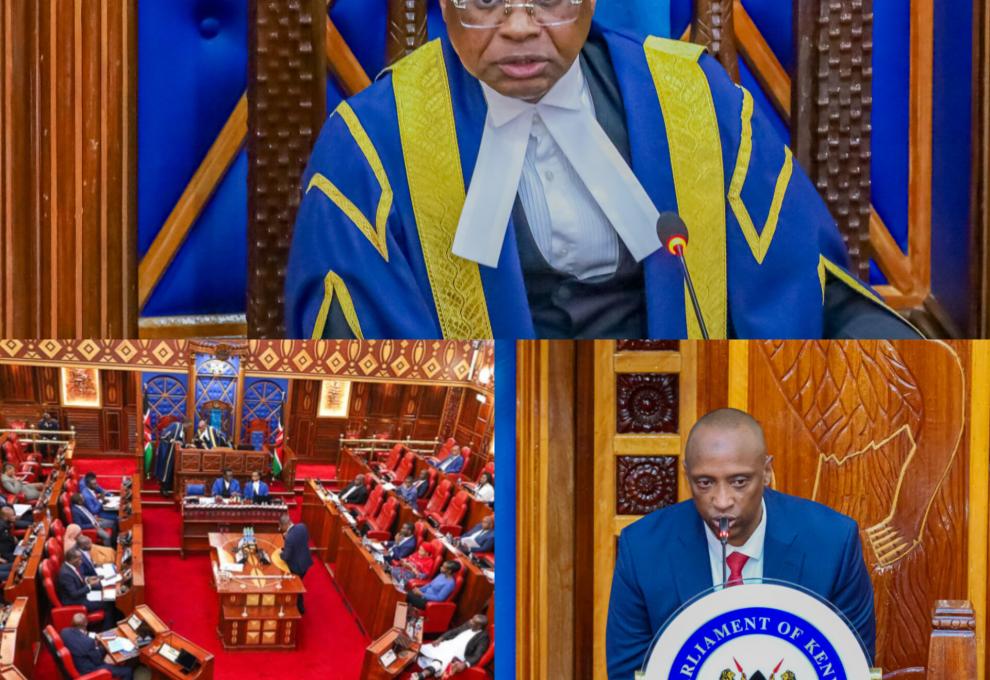𝐍𝐀𝐓𝐈𝐎𝐍𝐀𝐋 𝐀𝐒𝐒𝐄𝐌𝐁𝐋𝐘 𝐀𝐏𝐏𝐑𝐎𝐕𝐄𝐒 𝐁𝐈𝐋𝐋 𝐖𝐈𝐓𝐇 𝐀𝐌𝐄𝐍𝐃𝐌𝐄𝐍𝐓𝐒 𝐓𝐎 𝐏𝐑𝐎𝐓𝐄𝐂𝐓 𝐀𝐑𝐓𝐈𝐒𝐓𝐒 𝐑𝐈𝐆𝐇𝐓𝐒' 𝐀𝐍𝐃 𝐂𝐋𝐀𝐌𝐏𝐃𝐎𝐖𝐍 𝐎𝐍 𝐒𝐂𝐑𝐀𝐏 𝐌𝐄𝐓𝐀𝐋 𝐓𝐇𝐄𝐅𝐓
The National Assembly has passed the Statute Law (Miscellaneous Amendments) Bill, National Assembly Bill No. 67 of 2023 with far-reaching amendments to the Copyright Act, 2001 and Scrap Metal Act, 2015.
Among the amendments to the Copyright Act, 2001 was the deletion of proposed Section 30A, which sought to regulate equitable remuneration for performers and producers of sound recordings on a 50-50 basis. Lawmakers argued that the formula excluded other contributors to the creative process, leading to its removal.
Speaking on the issue, Hon. Daniel Wanyama, Chairperson, Committee on Sports and Culture, explained ,"We have ensured that no single provision overrides the rights of all stakeholders involved in the production of sound recordings. The creative industry deserves a balanced approach that is inclusive and sustainable."
Additionally, lawmakers supported the withdrawal of proposed amendments that allow the Kenya Revenue Authority (KRA) to collect royalties and increase licensing bureaucracy for collective management organizations were also struck out.
Hon. Wanyama noted that these proposals required further consultation to avoid stifling the sector. "We cannot rush measures that might hinder the growth of the creative industry. Royalties must be managed transparently but with minimal interference," he added.
Hon. James Nyikal highlighted the importance of this approach. Adding that “Artists form the backbone of our culture and economy. We must ensure they receive just compensation without creating unnecessary bottlenecks.”
To address the rampant theft of scrap metal in the form of infrastructure materials such as transformers, railway tracks, and road guards, the Bill introduced stricter regulations to the Scrap Metal Act, 2015. Notably, the definition of "scrap metal" was revised to replace "used automobile" with "discarded," preventing misuse of the term to legalize theft.
Hon. Kimani Ichung’wah, the Leader of the Majority Party, emphasized the importance of these changes, "By clarifying definitions, we are closing loopholes that have allowed vandals to plunder critical infrastructure. No one should exploit legal grey areas to harm national assets."
Hon. Ichung’wa also added that, “it is also good to include the exact definition of what constitutes platinoid groups as the Chairperson has enumerated. These amendments are in these Miscellaneous Statutes. Protecting our transformers and other installations, including road rail guards made from aluminium, will now be possible. People vandalise this critical Government infrastructure, including transformers.”
The amendments also restrict the issuance of special licenses for dealing in alloys tied to essential public infrastructure. Vice Chairperson of Trade and Industries Committee, Hon. Marianne Kitany emphasized, “These changes send a strong message to vandals and rogue traders: our national infrastructure is not for sale. Stronger penalties and clear regulations will safeguard public assets for generations.”
The amendments also restrict the export and import of scrap metal, granting the Cabinet Secretary for Industrialization powers to authorize such transactions under prescribed circumstances. Hon. Gichimu Githinji supported this, stating," We should delete any provision delegating powers to make laws. That can only be through this Parliament, either through an Act of Parliament or a regulation. Giving the Cabinet Secretary open powers to give licenses on such critical matters would have negated Parliament's role in making laws.
On her part, Chairperson, Regional Integration Committee, Hon. Wanjiku Muhia supported the deletion of an amendment to the Scrap Metal Act (Cap. 503) adding that the provision encourages the stealing of copper, aluminium and alloys.
“These metals form part of what we call the critical national infrastructure. As such, it will be improper to make provisions for the issuance of special licenses for dealing in alloys that form part of critical infrastructure.”
Speaking on licensing and oversight, Hon. (Dr) Wilberforce Oundo noted that discretion given to the Executive in the past had been abused and misused. Adding that, “Striking down this amendment cures the discretion of the Cabinet Secretary to give licenses that would deplete our critical infrastructure. Where discretion is given to a human being, we have seen in the past that the tendency to abuse or misuse is very compelling. We should never give room for that kind of discretion.”
The National Assembly further endorsed amendments that include the Principal Secretaries for Finance and Internal Security as Members of the Scrap Metal Council as they have a critical role to play in matters of policy formulation that will assist the Council in developing appropriate measures and mechanisms for regulating the scrap metal industry.



